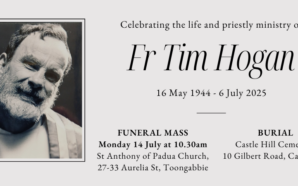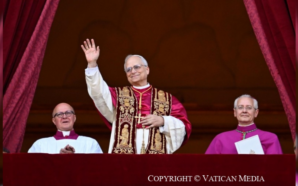Some people are terrified of hospitals. Others simply fear pain and the prospect of their own diminishment. We just do not want to think about it. None of us – unless we are masochists – welcomes suffering and death. Jesus himself was afraid of death in the Agony in the Garden. He was not ‘going through the motions’. If the Lord can be afraid, then it is OK for us, too.
This acceptance of creaturehood, the coming to peace with our human finiteness and vulnerability, is an important journey that we must all undertake. But it is a task we cannot do alone. We need support.
Do not expect much of it from our culture. Our society cherishes fantasies of eternal youth and conveniently airbrushes sickness and death from the ‘good’ life. The aged are hidden away in institutions; the disabled and terminally ill are not seen as ‘productive’, and hence are devalued. Many sick people experience the loneliness of abandonment from relatives and others who do not want to be reminded of their own mortality.
Christ calls us to ‘visit the sick’ and care for them as an essential part of our Christian mission of love and compassion. Hence the crucial role the Church played in establishing hospitals and the critical role it still plays in health care in most countries. Thank God for our Catholic hospitals, and indeed for most hospitals, where the medical profession generally selflessly ministers Christ’s healing power and love to so many.
But we cannot leave all the support needed to these wonderful professionals. There is something about personal contact with sick people that we need to be fully alive in the Spirit.
Daniel Berrigan SJ once wrote a tender and poignant account of such personal service – working as an orderly in St Rose’s Cancer Hospital in New York (We Die Before We Live; Talking with the Very Ill, Seabury, NY, 1980). St Rose’s exists solely for the poor who cannot afford cancer treatment. It takes no state money, instead surviving on providence alone. Fr Berrigan contrasts the quality of human care offered in this extraordinary Catholic hospital with the soulless bureaucracy of some other institutions.
In characteristically lyrical terms he meditates:
“To grasp something of this, one has to go beyond therapeutic convention. Even if the staff saw the hospital as a kind of mini-Titanic heading towards catastrophe (and they do not), it still must be reported that there are no ‘social facilitators’ aboard. People are employed or volunteer, not to daub a presentable cosmetic on the hard face of death, or to whoop things up despite all. We are there to help make life bearable, to make some sense of it, make it attractive as long as it lasts – together. There is respect for privacy, respect for moods and imbalances, a spoiling attention to diet. There is an unobtrusive religious feel about the place, which now and again surfaces in sacrament or prayer or plain talk about death; but only on the initiative of the patients. No one is force fed, whether on religion, psychosemantics or – antics. Little account is taken, except where suffering or depression require, as to being in our purported stages of dying.”
What matters for Fr Berrigan and for all who minister to the sick then is presence. Often we cannot take away the pain. Words fail us. But our humanity under the power of the Holy Spirit quietly tells us inside simply to be there for others.
Another Jesuit, Teilhard de Chardin, has a prayer well worth making our own. It has inspired many to visit Christ in our brothers and sisters and be more fully present to them. The sick need such support badly. And one day we will too.
PRAYER FOR THE GRACE TO AGE WELL
When the signs of age begin to mark my body
(and still more when they touch my mind);
when the ill that is to diminish me or carry me off
strikes from without or is born within me;
when the painful moment comes
in which I suddenly awaken
to the fact that I am ill or growing old;
and above all at that last moment
when I feel I am losing hold of myself
and am absolutely passive within the hands
of the great unknown forces that have formed me;
in all those dark moments, O God,
grant that I may understand that it is you
(provided only my faith is strong enough)
who are painfully parting the fibres of my being
in order to penetrate to the very marrow
of my substance and bear me away within yourself.
Teilhard de Chardin SJ
This article is part of a series of Lenten reflections entitled A Spirit of Mercy: Reflections on the Works of Mercy by Br Mark O’Connor FMS.
Br Mark O’Connor FMS is the Vicar for Communications in the Diocese of Parramatta.








